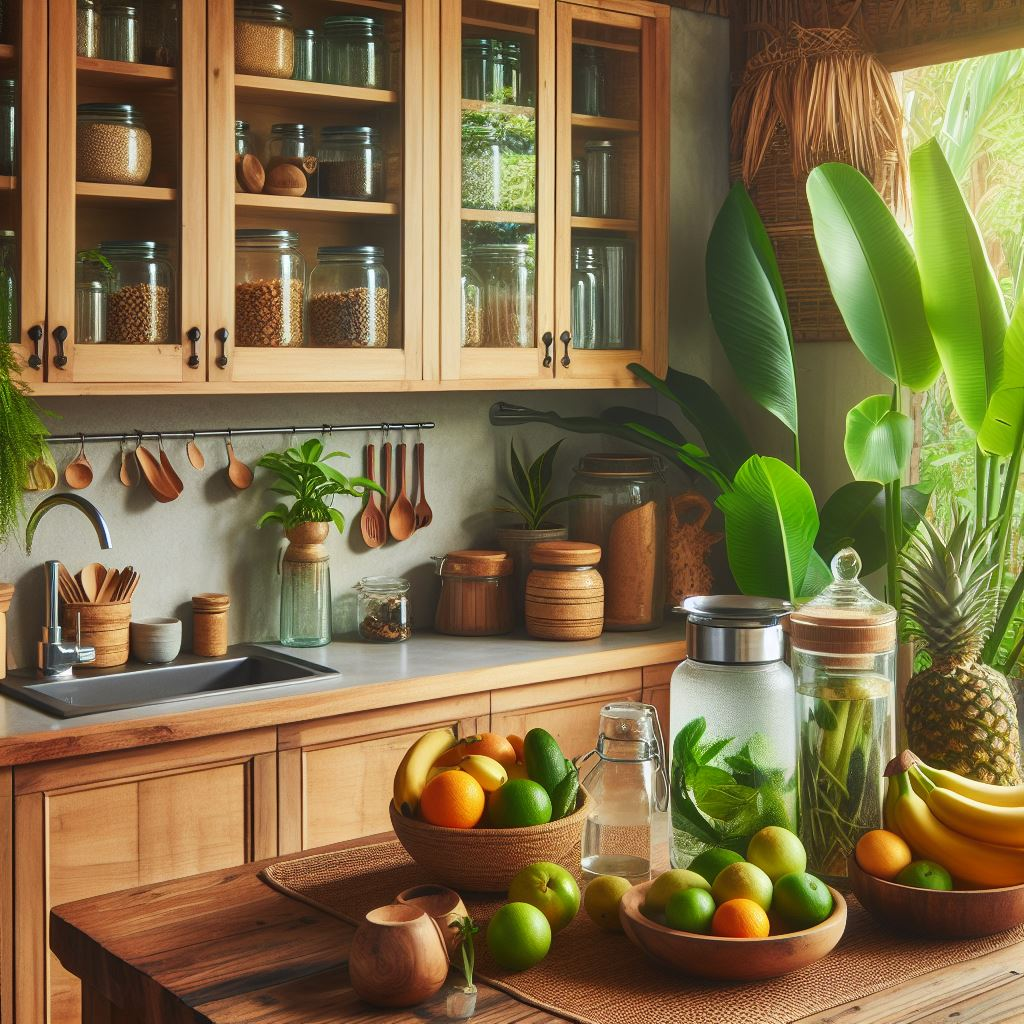
Creating a Zero Waste, Eco-Friendly Kitchen
In today's world, where environmental concerns are at the forefront of our minds, adopting eco-friendly practices in our daily lives has become increasingly important. One area where we can make a significant impact is in our kitchens. By embracing a zero waste or mostly zero waste lifestyle and implementing sustainable practices, we can reduce our carbon footprint and contribute to a healthier planet. God wants us to always take are of this earth that He has blessed us with. Everything belongs to God and He expects us to be good stewards of His creation. Psalms 24:1 The earth is the Lord’s, and everything in it. The world and all its people belong to him.
In this blog post, we'll explore practical tips for creating a zero waste, eco-friendly kitchen.
Invest in Reusable Kitchenware: One of the first steps in transitioning to a zero waste kitchen is to replace disposable items with reusable alternatives. Invest in high-quality, durable kitchenware such as stainless steel or glass containers, reusable silicone food storage bags, and cloth napkins. By eliminating single-use plastic bags, wraps, and toxic paper towels(you can purchase eco friendly paper towel brands), you can significantly reduce your household waste.

Shop Smart: Reduce Packaging Waste When grocery shopping, choose foods in the bulk bins and package-free products whenever possible. You can also bring your own reusable bags, jars, or containers to store items like grains, nuts, and spices. Choose products with minimal packaging or opt for brands that prioritize sustainable packaging materials such as glass, cardboard, or compostable materials. Buying in bulk not only reduces packaging waste but also saves your family money in the long run.

Compost Kitchen Scraps: Food waste is a significant contributor to landfill pollution. Instead of throwing away kitchen scraps, start composting! Set up a compost bin. Compost waste such as fruit, vegetable peels, coffee grounds, eggshells, and non-dairy food scraps. Composting not only reduces waste but also creates nutrient-rich soil for gardening.

Preserve Food: Extend the life of perishable foods by properly storing them. Use airtight containers, beeswax wraps, or silicone lids to keep food fresh longer. Consider freezing leftovers or excess produce to prevent spoilage.

Make Homemade Foods: Make your own sauces, condiments, and snacks to reduce packaging waste and control the ingredients. Use reusable containers for storing homemade foods instead of buying pre-packaged versions.

Repurpose Kitchen Scraps: Get creative with kitchen scraps by finding alternative uses for them. For example, vegetable scraps can be used to make homemade broth or stock, citrus peels can be infused into vinegar for cleaning, and coffee grounds can be used as a natural exfoliate in skincare.

Recycle Properly: Set up recycling bins for paper, glass, plastic, and metal materials in your kitchen. Rinse containers before recycling and follow local recycling guidelines to ensure items are recycled properly.

